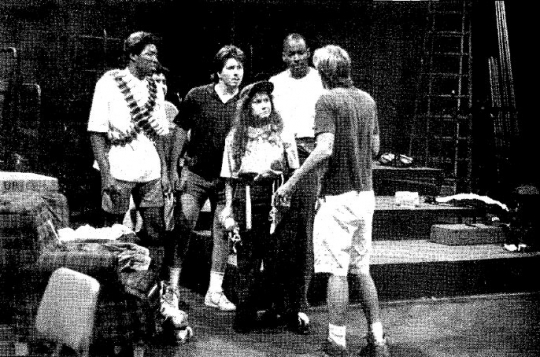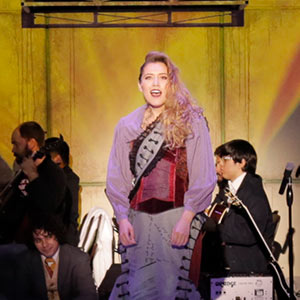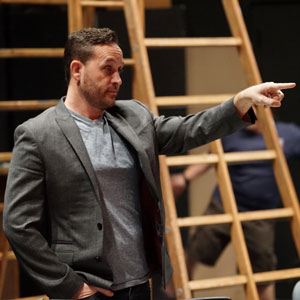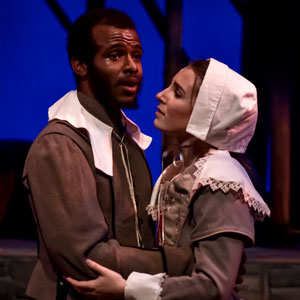Allen's Death: A Killer Comedy
— Fullerton College Hornet - Vijay Shah - Friday, October 6th, 1989
Tuesday night's performance of Woody Allen's "Death", put on by the Theater Arts Department Acting Workshop, proved to be and entertaining black comedy.
Its Oct. 3-7 run in the Studio Theater had something to look forward for each evening's audience.
"Death" is a dark comedy, the work of Woody Allen, along with the 20 minute play before it, "Street Smart", and adaptation of an Allen short story, "The Whore of MENSA."
Joey Napoli plays the lead role of Kleinman, a Jewish New Yorker, and, judging from Napoli's performance, reminiscent of Allen himself.
Kleinman is awakened in the middle of the night by a group of fellow citizens, exhorting him into joining their mob, who are in search of a killer lurking the streets of New York Kleinman reluctantly joins, and is utterly confused as to his part of the plan devised to catch the killer.
He's confused because no one ever fills him in on it. Kleinman wobbles around the streets, frightened of the nemesis that has the citizens armed with whatever tool their appropriate career uses.
Along the way, Kleinman meets various rogues, each of which seems to have his own purpose in the plan. Their reaction to the killer sees to exaggerate Kleinman's idea of him.
Finally, Kleinman is caught in a crossfire between opposing forces, and forced to choose sides. When a clairvoyant steps into the scene, Kleinman is in a noose, ready to be hanged by the people who pushed him into the mess. Luckily, he's disproved as the killer.
In his contemplation of the evening, a voice from behind greets him He introduces himself as the killer (Michael Garcia), and Kleinman is stunned when he discovers the killer is of average build, wears glasses, and speaks casually and cool.
The killer admits to being crazy, admits to the fact he indulges in murder for non particular reason. And, sad to say, Kleinman falls victim to the killer.
And his friends, lost in their own pursuit of the killer, leave Kleinman to die by himself.
The play ends enigmatically when the cast circles around Kleinman's body, singing a beautiful sad a-capella version of "The Lion Sleeps Tonight."
It's the end that seems to bristle with the most energy and feeling that any other part of the play. Its tie-in with the theme was ambiguous, but it captured beauty and sadness better than many movies have.
Napoli's performance as Kleinman, with his ever shaking hands and nervous fast talk, captures the spirit of Woody Allen great.
The only problem with Napoli was hedidn'tseem to fit the role. Itseemed awkward that a stable-looking fellow like Napoli would ever become a sweat-drenched, spectacled Allen. He seemed to possess the accent of a Joey Ramone (from Queens) rather than a New York City Jew.
One performance deserves commendation is that of Traci McWain, who stars as a street-wise prostitute. Her performance personified the character perfectly, from her bimbo accent to the glowing hat, with little fish swimming around in it, confidence was displayed in every step she took, and the memory of her lingered on long after the play was over.
Overall, the entire cast stood their ground well, and together, they made "Death" a very good thing to go through.
The short play that came before "Death", entitled "Street Smart" was an equally entertaining performance.
It was the story of a private detective, Arrow, played by Thomas M. The highlight of "Street Smart" is the end, where Arrow is engaged in a fight with Flossie (Karl Schott), a transvestite college reject, who runs an intellectual prostitute ring.
Kudoes go out to Nealeigh, Schott,and Laura Lynn Orlow, who played Sherry, a prostitute, for memorable performances.








